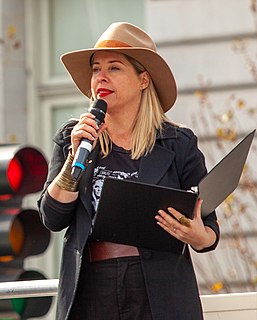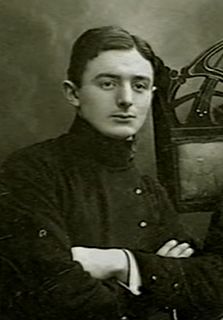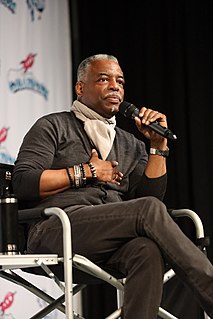A Quote by Esther Dyson
We invented our computers in the '80s. We networked them together in the '90s. Now we're giving them eyes, ears and sensory organs. And we're asking them to observe and manipulate the world on our behalf.
Related Quotes
The mediated world has approached us from a lot of different directions and we have freely chosen our automobiles and our skyscrapers and our televisions and our telephones and our computers because they have given us power and freedom. Now we are beginning to notice there's a price to pay for them. It's all interconnected, the good stuff and the bad stuff comes together.
In our memories, there is a graveyard where we bury our dead. They all lie there together, the loved ones and the ones we hated, friends and foes and kin, with no distinction among them. We have to mourn every one of them, because our memories have made them as much a part of us as our bones or our skin. If we don't, we've no right to remember anything at all.
The world will teach our children if we do not, and children are capable of learning all the world will teach them at a very young age. What we want them to know five years from now needs to be part of our conversation with them today. Teach them in every circumstance; let every dilemma, every consequence, every trial that they may face provide an opportunity to teach them how to hold on to gospel truths.
Once we have surrendered our senses and nervous systems to the private manipulation of those who would try to benefit from taking a lease on our eyes and ears and nerves, we don't really have any rights left. Leasing our eyes and ears and nerves to commercial interests is like handing over the common speech to a private corporation, or like giving the earth's atmosphere to a company as a monopoly.
Our eyes see very little and very badly – so people dreamed up the microscope to let them see invisible phenomena; they invented the telescope...now they have perfected the cinecamera to penetrate more deeply into the visible world, to explore and record visual phenomena so that what is happening now, which will have to be taken account of in the future, is not forgotten.



































